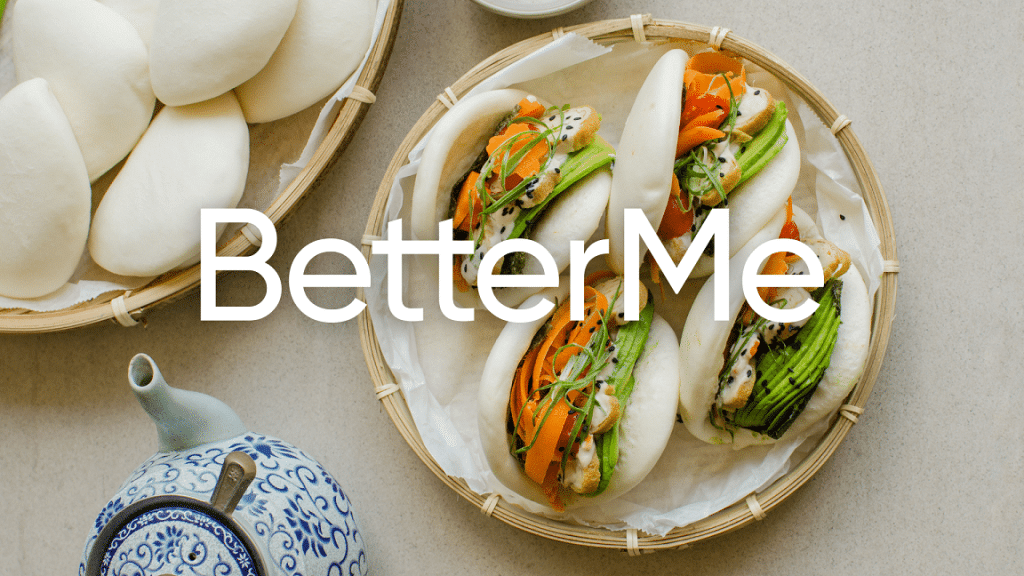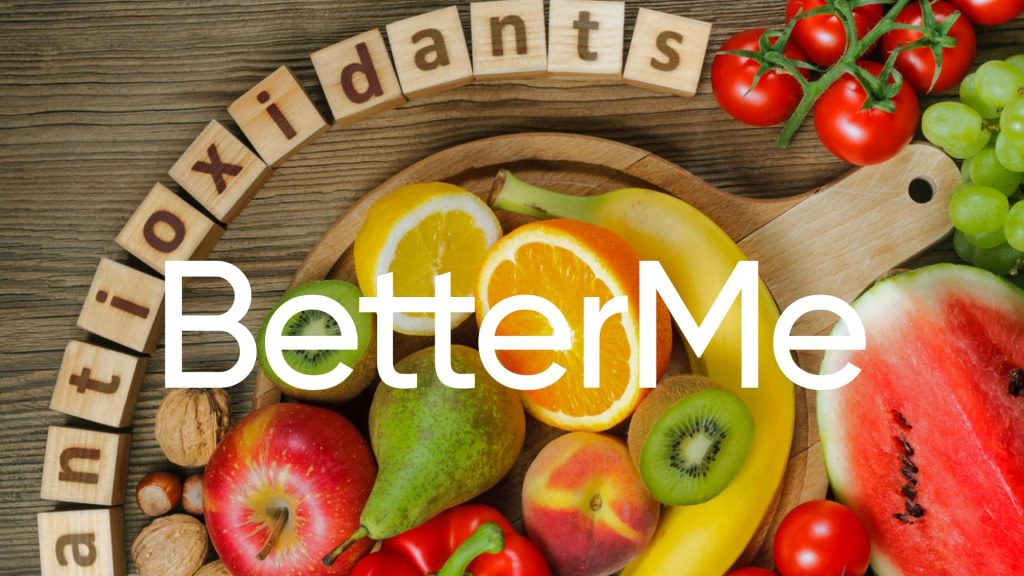There are 6 essential nutrients; carbohydrates, protein, fats, vitamins, minerals, and water. Why are these nutrients essential? Because your body cannot make them on its own, they must be obtained from the foods you eat. Without essential nutrients, your body cannot function properly.
Every second, thousands of chemical processes are occurring inside you. You play a vital role in supporting these processes by nourishing your body. Find out what role each of the 6 classes of essential nutrients plays, and how to get them in the right quantities daily.
Get your personalized
meal plan!

Get your personalized
meal plan!
Macros And Micros: What Is The Difference?
The 6 essential nutrients are classified into two – macronutrients and micronutrients. In the world of fitness and dieting, the terms “macros” and “micros” are common. They are often referred to in the context of calorie counting and tracking and maybe a source of confusion for beginners.
Macronutrients also referred to as “macros”, are nutrients that your body requires in large amounts. They include carbohydrates, protein, and fats. Micronutrients also referred to as “micros”, are nutrients that your body requires in small amounts. They include vitamins, minerals, and water.
Counting macros and micros is useful for weight loss, building muscle, and watching blood sugar levels (6). The Dietary Guidelines for Americans make recommendations regarding macronutrient intake (1). Based on these recommendations, one may adjust their intake to meet body goals.
6 Essential Nutrients: Carbohydrates
Carbohydrates have had a bad reputation for years. Low-carb diets are the in-thing in fitness and dieting. What most people know is that this nutrient is necessary for a healthy body. It is especially useful as an energy source.
Carbohydrates are broken down by the body into glucose, a simple sugar. Glucose is the main source of energy for all physical activity and fuel for the brain. There are two main types of carbohydrates: simple and complex.
Simple carbs are easy to digest. When you eat foods with simple carbs, your body breaks them down quickly (4). Although they are a quick energy source, they are also responsible for sugar spikes. Simple carbs are found in refined grains that have been stripped of the bran and germ. They are also found in fruits and dairy products, albeit in small quantities.
The refining process is done to provide soft, fluffy flour for pastries and to increase the shelf life of various grains. However, many important nutrients are lost in the process (7). Some manufacturers fortify refined grains and flour to make them more nutritious. Fortification pales in comparison to getting nutrients in their natural state from whole grains.
Complex Carbs
Complex carbs are more difficult to digest (4). You can refer to them as good carbs. Because they are not broken down fast, they keep you fuller for longer. If you want to reduce your calorie intake, satiating carbs can keep you from snacking and overeating. They do not cause sugar spikes. Furthermore, they provide wholesome nutrition.
Complex carbs are found in whole grains. The bran and germ of whole grains have iron, minerals, and fiber. Fiber is important for digestive health. It helps maintain frequent bowel movements.
The Dietary Guidelines for Americans recommend that carbohydrates make up 45 to 65 percent of one’s daily calorie intake (1). There are many sources of simple and complex carbs.
Read More: Three-Week Diet Plans: Getting Your Nutrition Back On Track
Sources Of Simple Carbohydrates
- Pastries made with refined flour e.g. bread, cookies, cakes, croissants, and donuts.
- White rice
- Pasta
- Sweets
- Sweetened beverages
- Agave Nectar
- Corn syrup
- Honey
- Molasses
- Sugar
- Fruits
- Milk
Sources Of Complex Carbohydrates
- Pastries made with whole-grain flour e.g. Ezekiel bread, Rye bread, whole grain bread.
- Brown rice
- Quinoa
- Whole grain pasta
- Oatmeal
- Fruits e.g. apples, berries, and melons
- Barley
- Vegetables such e.g. corn, peas, lima beans, and potatoes
- Beans and legumes e.g. chickpeas, lentils, black beans, and kidney beans.
Reasons why BetterMe is a safe bet: a wide range of calorie-blasting workouts, finger-licking recipes, 24/7 support, challenges that’ll keep you on your best game, and that just scratches the surface! Start using our app and watch the magic happen.
6 Essential Nutrients: Protein
High-protein diets are increasingly popular for people looking to lose weight and build muscle. The nutrients in proteins are called amino acids. They are 20 in number and carry out bodybuilding functions (3).
Proteins are broken down into two: essential and non-essential amino acids. There are 9 essential amino acids. They are derived from food because your body cannot make them. There are 11 non-essential amino acids. They are synthesized by your body using other nutrients.
The Dietary Guidelines for Americans recommends that 10 to 35 percent of one’s daily calorie intake should be from protein (1). Among all essential nutrients, protein is responsible for bodybuilding. It forms basic building blocks for hormones, antibodies, and cells. In special circumstances, it is used to fuel the body.
Proteins are one of the essential nutrients that are found in both plant and animal sources. Animal sources of proteins contain all essential amino acids. Plant sources usually have lower amounts of essential amino acids; some sources lack them completely.
Plant Protein
If you are a vegan or vegetarian you are probably wondering whether you can get all amino acids without relying on animal sources. Yes, you can.
It is important to know each source and which amino acids it contains. Being mindful and making informed food choices guarantees that you get all nutrients without relying on animal sources.
Not all animal sources of protein offer the same health benefits. White meat and seafood are healthier sources of nutrients than red meat (3). Processed meats that have been transformed to enhance flavor and increase shelf life are not as good an option as unprocessed ones.
According to Harvard Health, protein sources have what is best termed as a “protein package”(3) These are the additional nutrients, other than proteins, found in these sources. For example, a 4-ounce sirloin steak has 33 grams of protein and 5 grams of saturated fats.
A cup of cooked lentils has 18 grams of proteins, and 15 grams of fiber but no saturated fat or sodium. So, not all proteins provide equal nutrients – others may contain some undesirable components (3).
The rule of thumb regarding protein sources is to lean more towards white meat and seafood. Getting a variety of plant sources is preferable. Your priority should be to get nutrients from the healthiest sources possible.
6 Essential Nutrients: Sources Of Animal Proteins
- Poultry e.g. chicken, turkey, and duck.
- Seafood e.g. fish, crab, shrimp, and oysters.
- Eggs
- Dairy e.g. yogurt, milk, and cheese
- Red meat e.g. unprocessed beef, pork, mutton, goat, and lamb.
- Processed meats e.g. bacon, sausages, hot dogs, and cold cuts
- Sources of Plant Proteins
- Legumes e.g. beans and peas
- Nuts and seeds e.g. almonds, walnuts, sunflower seeds, flax seeds, chia seeds, pecans, and hazelnuts.
- Whole grains e.g. wheat, quinoa, wild rice, oats, millet, Kamut, and teff
- Vegetables e.g. Brussels sprouts, asparagus, and artichokes.
6 Essential Nutrients: Fats
Regardless of your body goals, you do not need to avoid fat completely. Your body needs fats to function properly. While it is true that some fats are harmful, it is also true that some are so important that they should be supplemented.
There are several types of fats. Just like the essential macronutrients, these have unique roles in your body.
Unsaturated Fats
These can be termed as good fats – they have many beneficial qualities. They are liquid at room temperature and are mostly derived from plant sources. Unsaturated fats ease inflammation, stabilize heart rhythms, and improve blood cholesterol levels (5). They are mostly derived from plant sources and fatty fish.
Unsaturated fats can either be monounsaturated or polyunsaturated. The former is good for heart health while the latter is essential for brain and cell function. Omega-3 fatty acid fish oil is some nutrients that are so important that people look towards supplements to get them.
Read More: How To Lose Lower Belly Fat: Shedding That Extra Fluff Around Your Tummy In A Couple Of Easy Steps
6 Essential Nutrients: Sources Of Unsaturated Fats
- Oils e.g. olive, peanut, canola, sunflower, flaxseed, and corn
- Avocados
- Nuts e.g. almonds, pecans, and hazelnuts
- Seeds e.g. pumpkin seeds
- Fatty fish e.g. mackerel, tuna, salmon, and oysters
Saturated Fats
Saturated fats should be avoided – the Dietary Guidelines for Americans recommends getting less than 10 percent of daily calories from this source (1). They are solid or waxy at room temperature. They have been linked to an increase in bad cholesterol and cardiovascular disease (5).
Animal products have high quantities of saturated fats. Some plant sources such as coconut oil, palm oil, and coconuts have lesser quantities of these nutrients. Eating good fats instead of saturated fats can help prevent many lifestyle diseases.
6 Essential Nutrients: Sources Of Saturated Fats
- Processed meats e.g. sausages, hamburgers, and bacon.
- Baked goods
- Pizza
- Cheese
- Fast food dishes
Trans Fats
These fats are a result of an industrial process called hydrogenation (5). Trans fats are found in margarine, shortening, and vegetable oils. They are also in beef and dairy, albeit in small amounts. Because trans fats raise bad cholesterol and lower good cholesterol, they are bad for you. They can also cause inflammation and contribute to insulin resistance.
6 Essential Nutrients: Vitamins
Vitamins are essential micronutrients. They are found in green leafy vegetables, colorful fruits, and lean proteins. One may also get these nutrients through supplements. They offer many health benefits. Below are some vitamins and their functions (2):
- Vitamin A – essential for vision;
- B1 – essential for healthy skin, hair, muscles, and nerves;
- Vitamin B2 – essential for healthy blood, brain. Helps convert food into energy;
- B3 – essential for healthy blood cells and nervous system;
- Vitamin B5 – essential for making hemoglobin, neurotransmitters, and hormones;
- B6 – essential for the manufacture of red blood cells, influences cognitive abilities and immune function;
- Vitamin B9 – essential for cell creation, prevents birth and spine defects in babies during pregnancy;
- B12 – essential for protection and growth of nerve cells, lowers the risk of heart disease;
- Vitamin C – protects against cancer, acts as an antioxidant, and bolsters the immune system;
- D – essential for healthy teeth and bones;
- Vitamin E – essential for cell protection and prevention of Alzheimer’s disease;
- K – essential for blood clotting
6 Essential Nutrients: Minerals
Among the 6 essential nutrients, minerals are some of the least talked about. Most people do not understand how important minerals are for body functions. Mineral nutrients are derived from fruits, vegetables, whole grains, and dairy products. Below are some minerals and their functions (2).
- Calcium – essential for building and protecting bones and teeth. Plays a role in hormone secretion, muscle contraction, and nerve impulse transmission.
- Chloride – essential for digestion and balancing bodily fluids.
- Fluoride – essential for strong bone formation and tooth cavity prevention.
- Copper – essential for making red blood cells.
- Chromium – essential for insulin activation.
- Iron – essential for oxygen transportation.
- Iodine – an essential component of thyroid hormone.
- Magnesium – essential for chemical reactions in the body.
- Potassium – balances bodily fluids and maintains a steady heartbeat.
- Sodium – essential for sending nerve impulses and muscle contractions.
- Zinc – essential for enzyme and cell formation.
Want to build an attention-grabbing bubble butt, blast away fat that’s stored in all the wrong places, spring-clean your diet, turn back the clock on your skin, skyrocket your self-confidence and shatter your insecurities? Check out the BetterMe app and set this plan in motion!
6 Essential Nutrients: Water
Discussing the 6 essential nutrients besides water is inaccurate. It is the most important of the nutrients. Without it, your body cannot function. It is involved in all chemical reactions that keep you alive. Whereas you can go a while without food, you can only survive a few days without water.
The recommended daily intake of water is 3 liters (1). However, the actual amount you consume depends on several factors. Your age, health, and physical activity determine how much water you need. The weather also determines how much water you can take.
The Bottom Line
Knowing the 6 essential nutrients and their functions is important for anyone interested in fitness and healthy diets. Carbohydrates, protein, fats, vitamins, minerals, and water all play unique roles in your body. Not all 6 essential nutrients food sources are the same; some are healthier than others. When in doubt, always go for organic, unprocessed food over the refined variety.
DISCLAIMER:
This article is intended for general informational purposes only and does not address individual circumstances. It is not a substitute for professional advice or help and should not be relied on to make decisions of any kind. Any action you take upon the information presented in this article is strictly at your own risk and responsibility!
SOURCES:
- Dietary Guidelines for Americans (2015, health.gov)
- Listing of vitamins (2020, harvard.edu)
- Protein (n.d., harvard.edu)
- Simple vs Complex Carbs (2019, diabetes.co.uk)
- Types of Fat (n.d., harvard.edu)
- What’s the Difference Between Micronutrients and Macronutrients? (2019, healthline.com)
- Whole Grains (n.d., harvard.edu)













